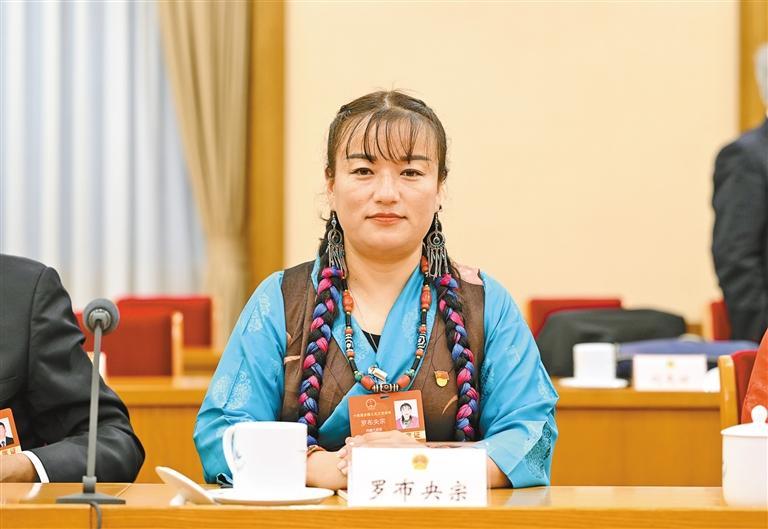Norbu Yangzom: Enhancing Flexible Employment and Developing New Employment Forms
In March, tea trees starts to grow tender buds in the tea gardens of Medog County. Thanks to its favorable location at the southern foothills of the Himalayas, Medog enjoys abundant moisture and warm climate, which then provides favorable conditions for developing the tea industry.
Norbu Yangzom, deputy to China’s National People’s Congress (NPC) and deputy director of Medog Village Committee, Medog Town, Medog County, Nyingchi City, introduced that the first tea tree was planted in Medog County in 2012. Till today, 103 organic tea gardens have been established there, with a total tea planting area of 19,000 mu, and six enterprises have been actively engaged in tea processing. What a great change!

Norbu Yangzom said: “After half a month, we will harvest our spring tea. In recent years, with the development of the tea industry in Medog County, many local women have taken up roles as tea pickers, while others have acquired tea-making skills and become skilled workers in this field. The cultivation of tea has also yielded significant economic benefits for the county. In 2024, Medog County’s sales revenue from raw tea leaves exceeded 15 million yuan.”
In recent years, Medog has also ventured into various other initiatives. For example, in just Medog Village, there are homestay services, the clothing cooperative, and a village-level art performance team. The village is an epitome how the entire county is actively engaged in the cultural tourism sector, thereby diversifying its sources of income. Notably, during China Media Group’s (CMG) 2025 Spring Festival Gala, an 8-minute promotional film showcasing Xizang gained significant popularity. Among its featured attractions was the Guoguotang Scenic Area in Medog County, which captivated audiences with its unique landscape of “greenness” and promoted local tourism.
Norbu Yangzom stated that the employment forms in rural areas are undergoing significant transformations due to the continued implementation of the rural revitalization strategy. Flexible employment and innovative business models create more opportunities for farmers to increase their income; however, challenges remain, including inadequate policy support and a lack of skills training. This year, Norbu Yangzom will focus on addressing the demands and issues related to employment for individuals and intends to present a motion aimed at “enhancing flexible employment and developing new forms of employment”.
